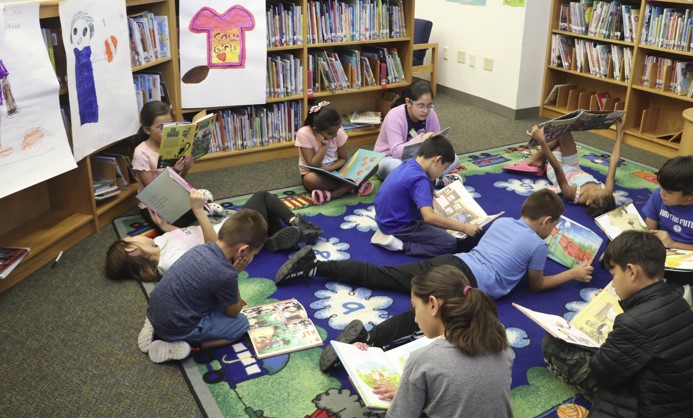Homework has long been a contentious topic in education, with debates surrounding its effectiveness and impact on students. Some argue that homework is essential for reinforcing learning and developing important skills, while others believe it can be burdensome and detract from other valuable experiences. In this article, we will explore the balance between homework quality and quantity, examining each approach's benefits and drawbacks. By finding the right balance and considering options like "do my homework," educators can ensure that homework serves its purpose without overwhelming students.
The Importance of Quality Homework
Quality homework is essential for fostering meaningful learning experiences and developing valuable life skills. When assignments prioritize depth and understanding over quantity, students have the opportunity to engage with the material on a deeper level. This type of homework encourages critical thinking, problem-solving, and creativity.
In contrast, quantity-focused homework can lead to stress and burnout. When students are bombarded with a large workload, they may feel overwhelmed and struggle to manage their time effectively. This can have detrimental effects on their mental health and overall well-being.
Striking a Balance in Education
While some students thrive under a heavy workload, not all learners have the same capacity to handle numerous assignments. It is crucial for educators to consider the individual needs and abilities of their students when assigning homework. By striking a balance between quality and quantity, teachers can ensure that homework is both challenging and manageable.
During the COVID-19 pandemic, many teachers have increased the amount of homework to compensate for the limited in-person instructional time. However, it is important to assess whether this additional workload is truly beneficial for students' learning. Rather than focusing solely on quantity, educators should aim to provide assignments that foster critical thinking and engagement with the content.
The Benefits of Quality Homework
Quality homework offers numerous benefits for students. It provides an opportunity to practice and refine skills learned in the classroom. By spending more time on meaningful assignments, students can deepen their understanding and develop mastery in specific areas. This type of homework also encourages independent learning and self-discipline.
Moreover, quality homework can teach valuable life skills, such as time management, organization, and perseverance. These skills are transferable beyond the classroom and contribute to student's overall success in their academic and professional lives.
The Pitfalls of Quantity-Focused Homework
Assigning excessive amounts of homework can have negative consequences. When students are overwhelmed with a high volume of assignments, they may rush through the work without truly comprehending the material. This can result in superficial learning and a missed opportunity for critical thinking and deeper engagement.
Additionally, excessive homework can lead to stress and anxiety, particularly for students who struggle to manage their time effectively. This can have a detrimental impact on their mental health and well-being. It is crucial for educators to recognize the signs of excessive workload and make adjustments accordingly.
Finding the Right Amount of Homework for Elementary Students
For young children in elementary school, the focus should be on cultivating a love for learning rather than overwhelming them with excessive homework. Research suggests that assigning too much homework at a young age may undermine this goal (Cooper, 1989; Cooper et al., 2006; Marzano & Pickering, 2007).
Instead of burdening young students with extensive assignments, educators can encourage nightly reading as a more effective activity. Reading not only enhances literacy skills but also fosters a joy for learning. By involving parents in this process, children can benefit from their support and engagement.
Striking the Balance in Middle School
As students progress to middle school, they become more capable of handling homework that requires deeper engagement and critical thinking. Moderate amounts of homework can help prepare them for scholarly work and independent learning (Cooper et al., 2006). Recent research also suggests that online math homework, tailored to individual students' understanding, can significantly enhance their test scores (Roschelle et al., 2016).
However, there are risks associated with assigning too much homework. When middle school students are overwhelmed with excessive daily assignments, their math and science test scores may actually decline (Fernández-Alonso, Suárez-Álvarez, & Muñiz, 2015). It is crucial for teachers to strike a balance by assigning challenging yet manageable homework that promotes autonomous learning.
The Role of Homework in High School
In high school, homework plays a crucial role in preparing students for college and beyond. At this stage, students should have developed the necessary study skills to delve deeply into a topic and retain what they learn (Cooper et al., 2006; Marzano & Pickering, 2007). Homework should be doable without assistance and related to the lesson at hand.
However, it is important to recognize the potential drawbacks of excessive homework in high school. When students spend too much time on homework, they may experience mental and physical health issues, such as increased stress levels and sleep deprivation (Galloway, Conner, & Pope, 2013). To prevent these negative outcomes, teachers should ensure that homework is purposeful, clear, and focused on enhancing learning.
Addressing Inequalities and Considerations for Homework
It is crucial for educators to consider the diverse needs and circumstances of their students when assigning homework. Students from low-income households or with learning disabilities may face additional challenges outside of school that hinder their ability to complete homework. Factors such as a lack of resources or parental support can impact their learning experience (OECD, 2014).
To address these inequalities, teachers should be mindful of the potential barriers that students may encounter. Incomplete homework should not be used as a sole indicator of a student's learning, as it may not reflect their true abilities. Instead, educators can provide alternative options for completing assignments or offer additional support to ensure all students have equal opportunities to succeed.
The Role of Parents in Homework
Parents play a crucial role in supporting their child's learning through homework. When parents have positive attitudes toward homework, it can promote academic success and foster a love for learning (Walker et al., 2004). Homework can provide insights into a child's strengths and interests, allowing parents to engage in meaningful conversations about their educational journey.
However, it is essential for parents to strike a balance and avoid becoming overly intrusive or controlling. When parents put excessive emphasis on test scores or grades, it can create unnecessary pressure and diminish intrinsic motivation (Madjar, Shklar, & Moshe, 2015). Parents should create a supportive environment that allows their children to take ownership of their homework while providing guidance and assistance when needed.
Striving for a Balanced Approach
In conclusion, the quality and quantity of homework should be carefully balanced to ensure maximum benefit for students. While quality homework promotes critical thinking, deep engagement, and the development of essential life skills, excessive quantity can lead to stress, superficial learning, and negative impacts on mental health.
Educators should strive to assign purposeful and meaningful homework that challenges students without overwhelming them. By considering the individual needs and circumstances of their students, teachers can create a supportive learning environment that fosters growth and success.
Parents also play a vital role in supporting their child's homework experience. By maintaining a positive and balanced approach, parents can encourage their child's love for learning and provide valuable guidance along the way.
Ultimately, finding the right balance between quality and quantity is essential for ensuring that homework serves its purpose as a tool for learning and growth. By prioritizing meaningful engagement and fostering a supportive learning environment, educators and parents can help students thrive academically and develop valuable skills for the future.
Remember, homework should be a means to an end, not an overwhelming burden. It should inspire curiosity, promote learning, and contribute to the holistic development of students. With a balanced approach, we can make homework a valuable and rewarding part of the educational journey.



